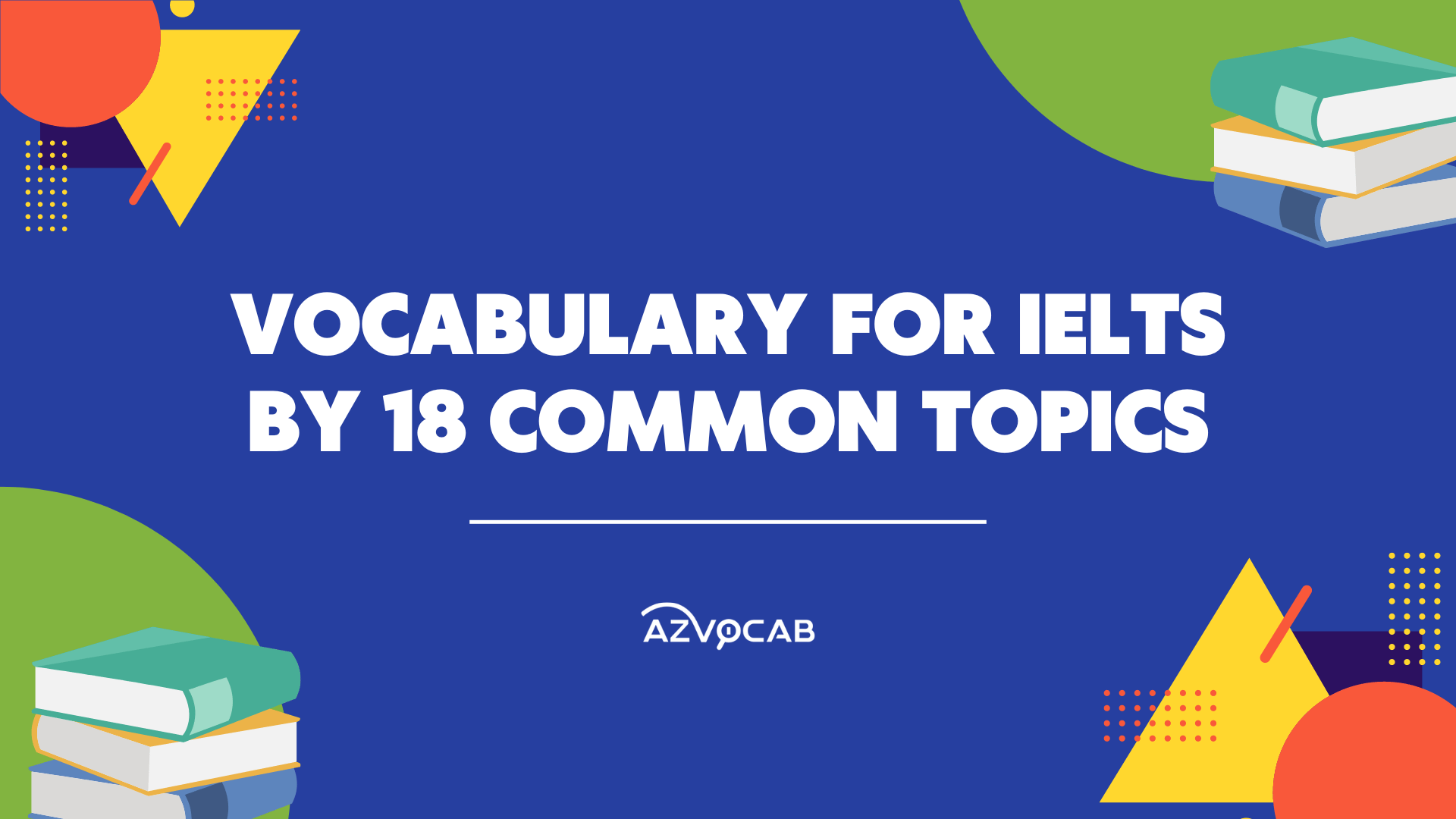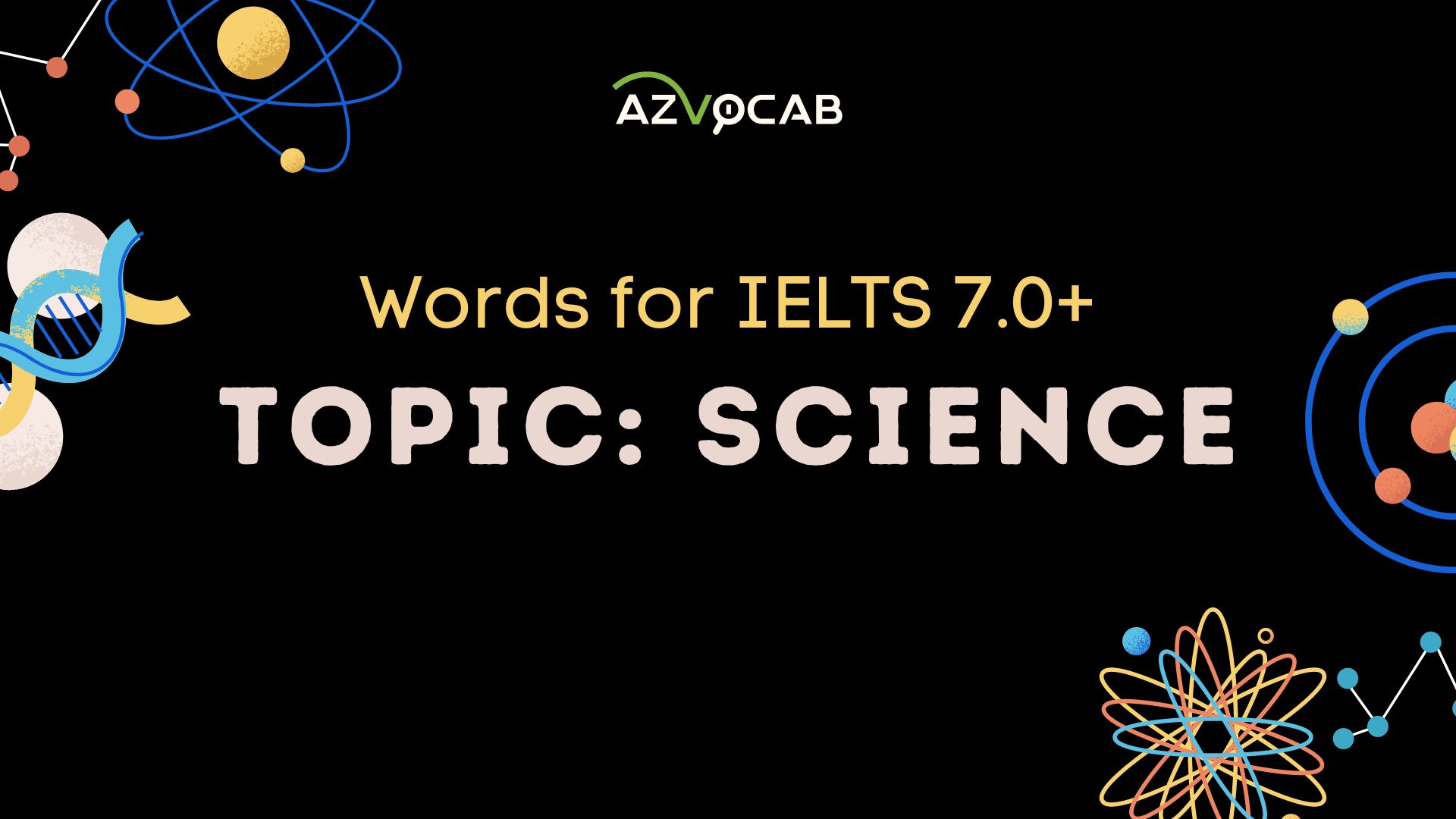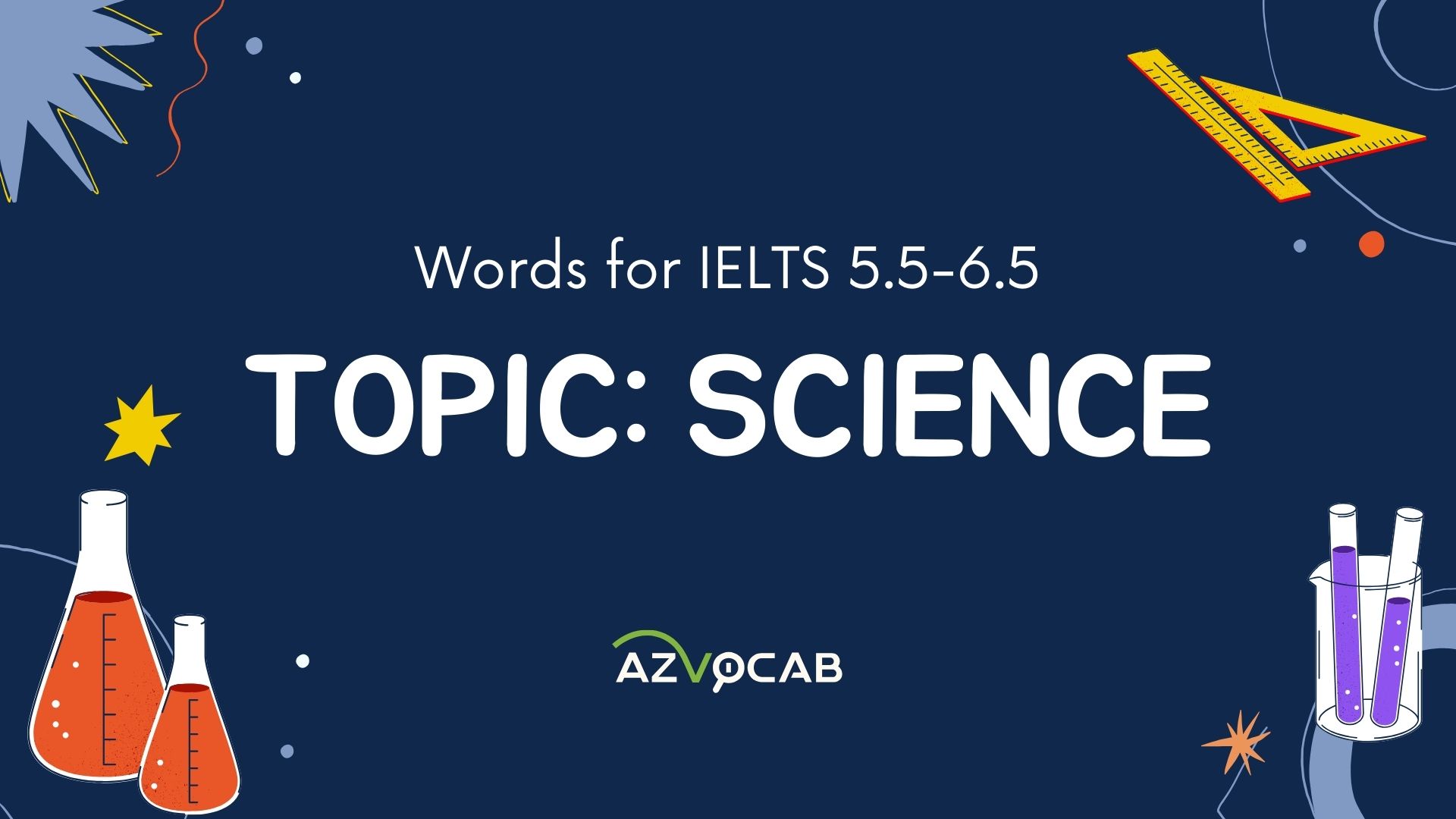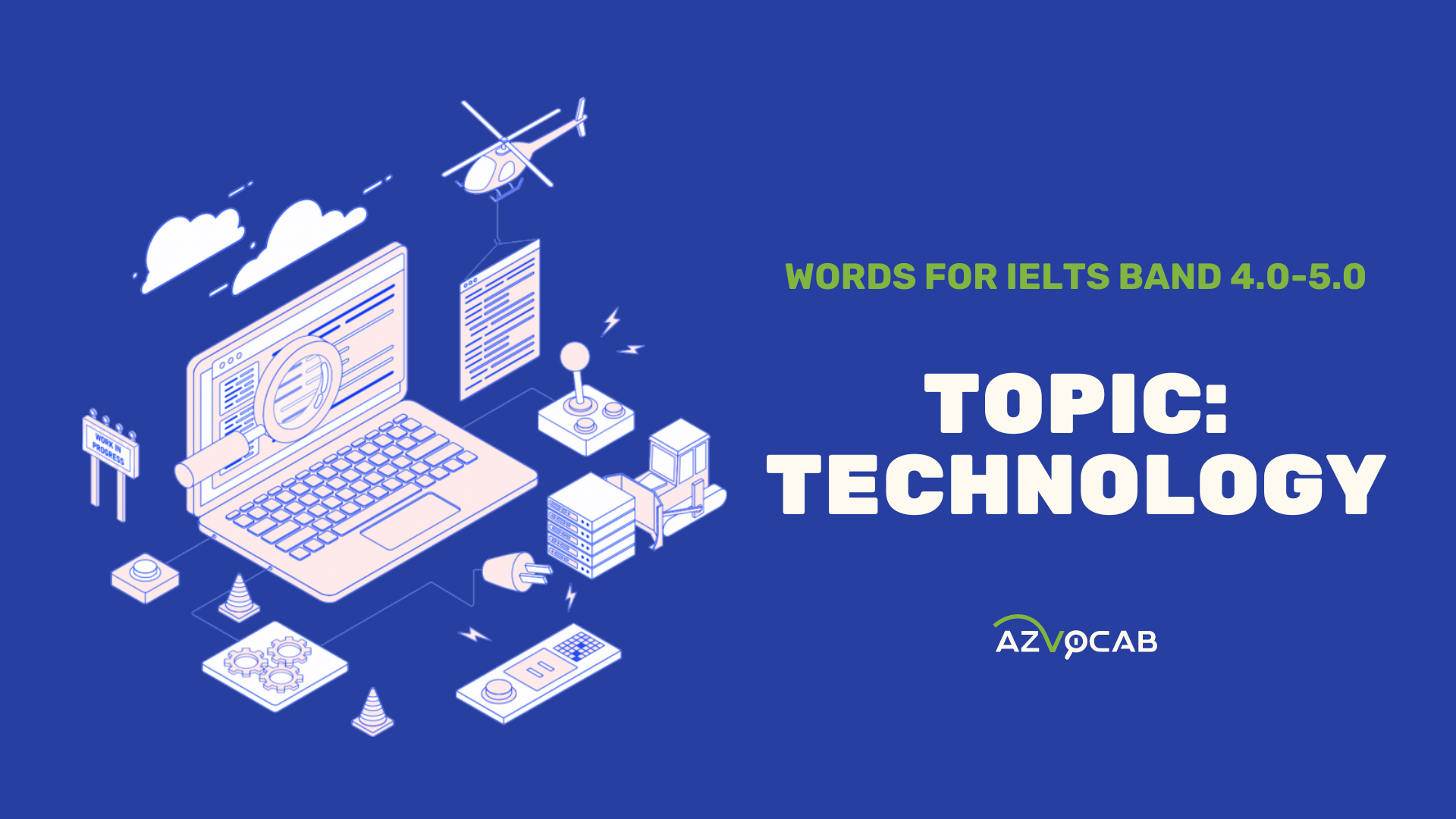Learning IELTS vocabulary by topic is an effective and quick way to enhance your vocabulary to prepare for the IELTS exam. azVocab summarizes 18 common topics in IELTS with the most common vocabulary.
Benefits of Learning Vocabulary by Topic
Effective Learning and Long-Term Retention
The vocabulary pool for any test, especially IELTS, is often extensive. Breaking down this vocabulary into topics helps learners study faster and more easily. Words on the same topic are often used in the same context and are related to each other. This helps learners see the connection between words and, as a result, remember them for a longer time.
Logical Vocabulary Learning
In vocabulary learning, many people think it involves memorizing the word and its meaning. However, breaking words down by topic helps you establish a logical understanding of words — knowing which words belong to which topics, and this allows you to categorize and discover the words based on their topic. Learning vocabulary this way requires you to organize words logically; for example, in the field of Economics, there are smaller topics like business, companies, and advertising, rather than health, mental well-being, and so on.
The topic and subtopic must be related; therefore, learning vocabulary helps you classify and identify related words, which is excellent for developing your thinking and memory. A useful tip is to create a mind map to learn and understand how to classify words visually and logically.
Enhanced Imagination and Quick Reflexes
Learning vocabulary clearly and visually helps learners easily imagine words when needed. This is similar to learning vocabulary through images. When you need to “retrieve” a word from your memory, visually clear or visually presented words are easier to “come to mind,” and you will remember these words faster.
Quickly recalling words will help you improve your communication skills. When you don’t need to think too long to find the right word, your communication will flow more smoothly. This is especially beneficial in the IELTS Speaking test, as having a good language reflex will help you answer the examiner’s questions fluently and logically, resulting in higher scores.
Motivation for Learners
Seeing a long and dense list of words can be discouraging for learners. However, breaking down them makes vocabulary learning easier, and seeing a short list of words to learn can motivate learners to get started.
Additionally, you can start by learning from topics that interest you or that you are passionate about to create initial motivation for vocabulary learning. Starting with these subtopics, you will feel that learning English vocabulary is no longer as difficult and discouraging as before. After forming the habit of vocabulary learning, learning other topics will become much easier.
Effective Methods to Learn Vocabulary
Once you have identified the vocabulary topics you need to learn, it’s essential to have effective learning methods to master them. azVocab provides five methods to make vocabulary learning easier and achieve the highest results.
Determine Your Level and Set Clear Learning Goals
Before learning, determine your current vocabulary level to know what vocabulary you should learn next. After that, set clear and achievable vocabulary learning goals. Don’t set goals that are too big; instead, break them down into smaller goals to avoid feeling discouraged.
Identify the Vocabulary List to Learn
As mentioned earlier, identifying vocabulary by topic helps you remember words for a longer time. Therefore, you must determine the vocabulary list you need to learn. The vocabulary list should not only be organized by topic but also match your vocabulary level. This helps you avoid learning words randomly and excessively.
Learn Vocabulary in Word Families, Phrases, and Context
Successful vocabulary learning means being able to use the word in a specific context. Therefore, learning vocabulary through examples and applying them in specific contexts is crucial. Moreover, learning words from the same root helps you remember many words at once, with less effort.
Learn Synonyms, Pronunciation, and Spelling of Words
Do not overlook any aspect of a word because it helps you distinguish words from each other. In English, many words have similar spellings but completely different meanings or pronunciations. Therefore, knowing all aspects of a word helps you differentiate one word from another and use it correctly.
Practice Using Vocabulary Regularly
Practice, practice, and practice are the keys to making vocabulary dive deep into your memory and helping you remember it for a long time. In addition, practicing will increase your reflexes with words, and words will “come out” of your memory automatically, helping you achieve high efficiency in communication.
18 common topics in the IELTS exam
The 18 common IELTS vocabulary topics include:
- People and Relationships
- Entertainment and Hobbies
- Health and Fitness
- Education
- Language and Communication
- Business and Economics
- Fame and Media
- Transport and Travel
- Culture and Society
- Science and Technology
- Time and History
- Art
- Nature and The Environment
- Crime and Law
- Places and Buildings
- Universe and Astronomy
- Work and Lifestyle
- Energy
Each theme provides you with the most common vocabulary with full meanings and examples. Most examples are taken from reading and listening materials for practicing and using in the IELTS exam. This helps you understand how to use words in specific contexts and get used to the language and style for this test. Additionally, when learning any new vocabulary, be sure to create sentences or examples for these words to understand how to use them and remember them longer. Don’t forget to practice using words every day.

Above is the IELTS vocabulary by topic that azVocab has compiled. In addition to dividing words into topics for learning, combine them with various vocabulary learning methods to make vocabulary learning more effective and manageable. We wish you success in your upcoming IELTS exam!






